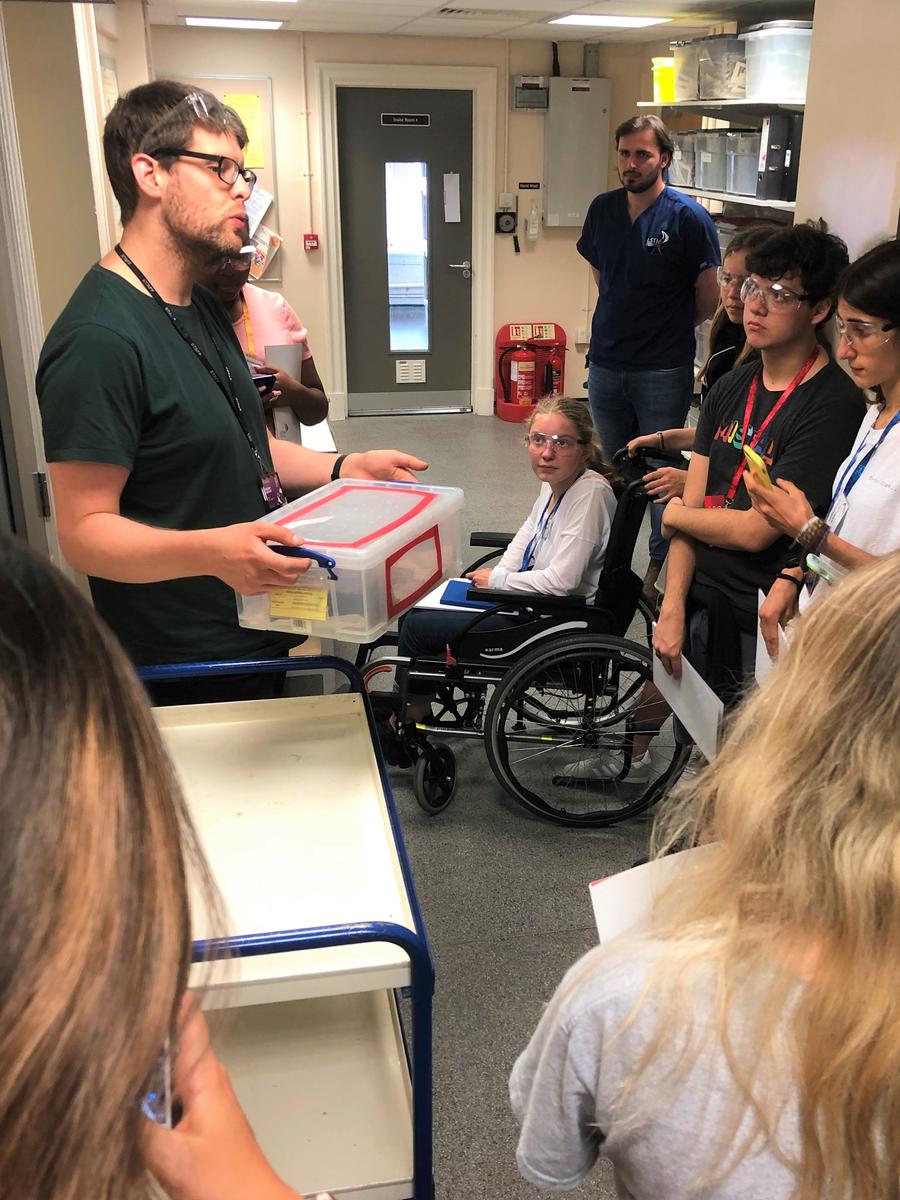

LSTM scientists respond to questions posed by students at the London International Youth Science Forum 2019!
LSTM's, Lee Haines and Tony Nolan, respond to questions posed by the students who visited LSTM as part of the London International Youth Science Forum (LIYSF). LIYSF is a two-week residential student event held annually in London which attracts 500 of the world’s leading young scientists aged 16-21 years old from more than 75 participating countries. LIYSF also includes day visits out to other leading UK research centres including LSTM.
Dr Tony Nolan is a Senior Lecturer in the Department of Vector Biology at LSTM.
Dr Lee Haines is a Post-Doctoral Research Assistant in the Department of Vector Biology at LSTM.
Do you think a malaria vaccine would be enough to solve this main issue?
Tony - This is a good question. Vaccines have been game changers for many diseases caused by viruses and bacteria. If we could get a vaccine for malaria that would be great but we've been trying for 50 years and it is not easy. The reason is that the parasites that cause malaria are way more complex, having hundreds and thousands more genes than bacteria or viruses, with many of these genes having specifically evolved to subvert or evade exactly the immune response that a vaccine is designed to induce.
That's not to say it's unachievable, nor that we should stop trying, some progress has been made. However, to truly tackle malaria it will require a combination of approaches that tackle the mosquito vector that transits the parasite between people, tackling the parasite and also general improvements to healthcare and infrastructure
What do you find most interesting about your research? Asked by Hannah 19
Lee - Hi Hannah. You ask a question that produces constantly changing answers in my life. However, there are two things that remain constant about being in research that I find rewarding. I am fascinated by the relationship between fear and learning. The more I learn about something, the more my fear is replaced by amazement. And let me tell you, when you study parasites and blood-sucking insects, you can often be put off by disgust or fear. However, if you persevere through this, you will feel excitement and wonder at how these creatures survive, how uniquely they reproduce and how beautifully they move or look. Your world expands and suddenly you start seeing answers to problems that often are far removed from what you are doing. An example of this would be a molecule called maxadilan. Have you heard of it? It is a small peptide made by sand flies that accumulates in the sand fly spit. Sand flies spread a disease called leishmaniasis and their bite hurts! Scientists started studying sand fly saliva to find out what the fly injects alongside the parasite, which helps transmit the disease. Maxadilan helps the fly by opening an animal’s blood vessels so the blood flows freely and is easier for the fly to take a blood meal. However, the story does not end there. Now, this insect peptide has gained attention from the medical field and is being tested as a novel way to treat migraines! The second thing that is interesting about research in general, regardless of what field you are in, are the phenomenal human beings you get to meet. I have colleagues and friends now that span the globe that share the same vision as myself – to work on something that changes the world for the better. It is very powerful to be part of such a team and you never stop learning. Thanks for asking such a great question.